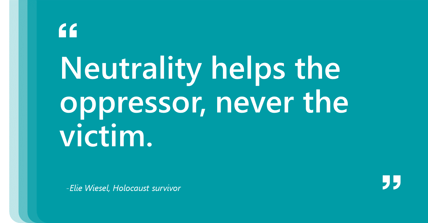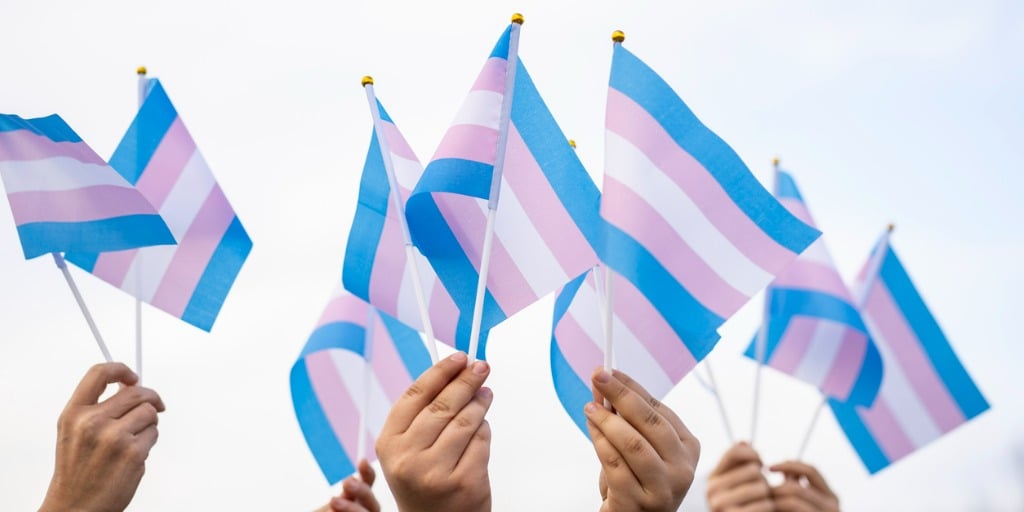Ways you can celebrate Transgender Day of Visibility and practice allyship
Designated as International Transgender Day of Visibility, March 31st is a day of awareness and celebration worldwide, while acknowledging that considerable work still needs to be done to support those who are transgender.
As the U.S. White House noted last year, "Despite our progress in advancing civil rights for LGBTQIA+ Americans, too many transgender people — adults and youth alike — still face systemic barriers to freedom and equality." That sentiment still rings true, and some key facts about those barriers and other challenges include:
- LGBTQ youth are 120 percent more likely to experience homelessness than non-LGBTQ young people. Those who are transgender are at exceptionally high risk, often due to conflict in their homes.
- Transgender individuals are at greater risk of mental health problems like depression and anxiety—and are more than six times as likely to attempt suicide.
- Those who are trans face more discrimination in nearly every realm, from school to workplaces, including healthcare settings. According to a review by Human Rights Watch, transgender patients reported numerous incidents of discrimination in routine health screening, counseling, and even pediatric care for their children. Some added that they postpone or avoid medical treatment because of the issue.
These are daunting and sometimes overwhelming difficulties, but there are steps you can take to be a force for inclusivity.

Being an advocate for change means celebrating Transgender Day of Visibility and carrying that awareness and allyship into every day. Here are some ideas for cultivating more recognition and education for yourself and your community:
- Start with respect. According to advocacy organization GLAAD, becoming an effective ally involves steps such as not making assumptions about a transgender person's sexual orientation, using the name a transgender person asks you to use—rather than their birth name—and being careful about confidentiality since some trans people are not "out" to everyone around them.
- Challenge anti-transgender "jokes" and comments. As Holocaust survivor, Elie Wiesel famously said, "Neutrality helps the oppressor, never the victim. Silence encourages the tormentor, never the tormented." Although the easy route might be to ignore anti-trans comments or walk away, that can lead transgender people to believe no one is there to support them.
- Listen to transgender people. As GLAAD states, the best way to be an ally is to listen with an open mind to transgender people speaking for themselves. Watch films and TV series about trans people, and read books and blogs written by transgender writers, to understand the issues from their perspective. GLAAD notes that it's important to know your limits as an ally. "Don't be afraid to admit when you don't know something," the organization suggests. "Seek out the appropriate resources that will help you learn more."
- Be direct in your support. It might seem like putting up a transgender flag symbol on your social media or an actual flag outside your home or workspace is a minor gesture, but you don't know who will see that and feel recognized. Being vocal in your support has a ripple effect, and it allows trans people to see you as a safe space and ally.
- Create change in your community and beyond. The National Center for Transgender Equality suggests you can drive change through efforts like calling or writing your elected officials to thank them for supporting trans rights and equality, as well as working to pass laws in your city or state that outlaw discrimination. You can work with schools to implement policies that support transgender and gender non-conforming students.
If you're transgender, continue cultivating a network of allies who are ready to support and celebrate you. Also important: Know your rights and resources. From pushing back against workplace discrimination to standing up for equality in education, housing, and healthcare, there are protections already in place that can make a difference. Check out these resources as a starting point:
- GLAAD
- National Center for Transgender Equality
- Human Rights Campaign
- Transgender Law Center
- The Trevor Project
On March 31st, we can all celebrate how far we've come in advancing transgender rights, while still continuing to make strides toward a truly inclusive and welcoming society for all of us.
If you're a member of Mass General Brigham Health Plan, learn more about our gender-affirmation care management program.
